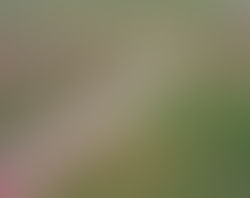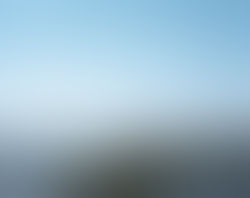Flevoland .NL 2010-2016
4 x 5-inch negatives | Limited edition prints available
If anything, freedom is what you feel when first confronted with the Dutch Flevo polders. Freedom and perhaps a sense of being lost in space. The low horizons, immense skies, and endless perspectives are that of a desert landscape – albeit with a human element. But how do interpret such a unique landscape? How to settle and live there?
Reclaiming land is a centuries-old tradition in the Netherlands. In the last century, it peaked in size made possible by technical innovations. Land reclamation had often been a strategy by which landowners extended their holdings, an investment by rich merchants, or was a public undertaking. In the case of the IJsselmeerpolders, the Dutch government wanted to safeguard food provision for the nation by providing agricultural land; later, urban development became an important motive.
The IJsselmeerpolders—Wieringermeerpolder (constructed 1927–1930), Noordoostpolder (1937–1942), Oostelijk Flevoland (1950–1957), and Zuidelijk Flevoland (1959–1968)—provide almost ten percent of the total arable land in the country today.
Freedomland is a visual journey into a highly regulated- man-made land; captured between forces of order and space, concept and execution, authority and freedom – and expressed as a new conceptual territory.
The project aims to be a mirror of this powerful geopolitical process of landscape and social engineering; a photographic journey back in time through the three main spatial and historical contexts of Flevoland: Almere, Lelystad and the Noordoostpolder.
Denis observed and documented this process for years. He shows in his photos how the new land is being structured and prepared for use, how diverse dreams become reality, and how different ideas of freedom are being expressed. Ranging from the vacant land’s inherent promise to the diversity of realized projects, the photos show different forms and phases of this fundamentally malleable landscape.
Next to the sociological and historical interest, the main theme in this series is Denis's concern for man’s interaction with nature and engagement with a sustainable society. Beyond presenting a personal view on liberties and limitations in the Dutch polder and urban landscape, this series is an attempt to start a debate on how city and landscape, man and nature can coexist.
INTRODUCTION
FREEDOMLAND
ALMERE
NEXT NATURE
WATERLOOPBOS

Lelystad was a chance for modern architects and planners to demonstrate their abilities and convictions and to build from scratch. Interestingly enough, it was not old knowledge of colonial settlement but more recent experiences in laying out city extensions that shaped Lelystad. It fits in the international series of new towns that were developed during the 50s and 60s. A child of its time: grid-like structures, separation of road infrastructure and housing quarters, four-story walk-ups….
The two cities can be considered to be two materialized ideals, two utopias if you like. But utopia in the Netherlands is (almost) always pragmatic. Maybe the Bijlmermeer can be considered Holland’s only true utopian city; the others are ‘utopian about the present’ at best. Lelystad, in its relatively isolated position and as the province's capital, represents a mid-sized regional centre, trying as well as possible to provide all that can be expected from such a town.
But Lelystad never realized its dream in terms of population growth. The original plan was to reclaim further land at its waterfront. Furthermore, there were plans to create the national airport in the middle of the Markermeer. But a core concept changed in the attitude of how the Dutch moved from 'the fight against water' to a condition of co-existence. Therefore it was decided to not reclaim further land and leave space for the water.
Lelystad island was the first settlement, created with basalt stones to host the facilities of those workers who built the Southern part of the province. Cornelis van Eesteren proposed a city that could develop from its own waterfront, inspired by cities like Helsinki. Instead, the government opted for a city centre placed inland, away from its historic core and the central element of the region: water.
Explore selected Lelystad's cartography and research
To offer a better experience, the link will open a new page; you can continue here after you close it.
LELYSTAD

Geographically Almere is more a satellite of Amsterdam than a completely independent city, as Lelystad is. But also in terms of planning it is better understood as an anti-city. The model for Almere was the region called ‘Het Gooi’, situated opposite Almere on the mainland. Het Gooi consists of several small towns and villages that house the wealthier classes of the Netherlands, beautifully situated amongst woods, moors, lakes and pastures and close to the cities of Amsterdam, Utrecht and Amersfoort.
This low-rise, garden city-like, ‘poly-nuclear’ structure inspired the poly-nuclear one of Almere, consisting of (when fully developed) six spatially separated centres, each with a specific theme and character: Almere Stad, Almere Haven, Almere Buiten, Almere Hout, Almere Poort, and Almere Pampus. Almere was also a reaction to the massive (and rather anonymous) construction of standardized high-rise social housing in the Netherlands during the 50s and 60s. Small scale, low-rise and individualized, that was the idea. A suburban city to house 300.000 to 400.000 inhabitants.
Compared to Lelystad, which never realized its goals in growth and number of inhabitants and suffered a reputation of being unattractive; Almere was and still is a great success. As the fastest growing city in this country, it is likely to become the fourth or fifth city in the Netherlands in less than fifty years.
But what may be more interesting: Almere added a new city profile. Almere is synonymous with not only comfortable and affordable living, but also with nature-related activities, which are expressions of a certain type of (individual) freedom.
The latest development there is to experiment with city extension without urban design. The plan should permit individual clients to build their own houses with maximum freedom.
Explore selected Almere's cartography and research
To offer a better experience, the link will open a new page; you can continue here after you close it.


The Noordoost Polder is, in fact, the most considerable reclaimed territory on earth. Designed by Dutch master planner Cornelis van Eesteren as an immense agricultural machine, which enabled the Dutch to expand to a modern and large-scale productive landscape. It is the first Dutch modern polder in which the layout was planned as an integral task, involving all its agricultural, urban, and landscape elements at once while reflecting state of the art in design, science, and engineering.
With Emmelord at its centre, the Noordoostpolder resumed the concept of the Garden City by Ebenezer Howard, with a predefined structure driven by water channels and large-scale agricultural allotment that allowed the government to move farmers and restructure the land in the south of the country during the '60s.
Hidden between this geometrical manmade land, a unique place has been chosen as a witness of the Dutch unique knowledge of water management. Somewhere between the physical and the digital universe, between reality and simulation, lies a forest. For fifty years, until 1996, hundreds of studies have been conducted here into the behaviour of water. Dutch and foreign ports, rivers and coasts were recreated in the forest as scientific models. From the port of Bangkok and Lagos to the coast of Denmark, from the Willemstunnel in Rotterdam to the port of IJmuiden. In total, more than 200 different studies have been conducted. In 2002 the Waterloopbos became a National Monument, with remains of the Hydraulic Laboratorium 'De Voorst'.
Simulated realities seem to be the privilege of computers these days. Analogy has been replaced by the discrete logic of digital machines: in other words, computer modelling that is faster, cheaper and more precise than physical models. Mankind computed things long before computers, and while computers' computing power and speed cannot be trumped by any other simulation method, we have also lost some qualities of reckoning that today’s digital devices can’t give us.
A unique combination of flora, also due to species that were imported with the stones from the Baltic regions. Models made of concrete and bricks are laying entities that remind us of this unique knowledge. In the forest, you can see how fast nature works. Many models are overgrown by mosses, plants and trees, and birds shelter.
Explore selected NOP & Waterloopbos's cartography and research
To offer a better experience, the link will open a new page; you can continue here after you close it.
EXHIBITIONS
2019.09.10
MATERIA ET LOCIS | Galleria Celeste, Vicenza, IT | Solo exhibition + guest curator → Download Exhibition press release PDF. Text IT+ENG by Mariasole Ariot
2016.2017
You Are Here | KAF,Almere, NL | Solo exhibition
2015 .03.04
P O S I T I O N S | Van Kranedonk Gallery, Den Haag. NL | Solo exhibition → Download Exhibition press release PDF. Text ENG
2014 .07.08.09
YOU THEM US | photoQ bookshop, Amsterdam. NL | Solo exhibition + guest curator
2013 .09.10.11.12
FREEDOMLAND | caSla Architecture centre, Almere. NL | Solo exhibition + guest curator → Download Exhibition press release PDF. Text NL by Arjen Oosterman. → See a video impression of the exhibition on YouTube.
2012 .10.11.
STAY FOREIGN | Slaakhuis, Rotterdam. NL | Duo exhibition with Müge Ylmaz → See a video impression of the exhibition on YouTube.
2011 .01.02.03.
FREEDOMLAND: the new Atlantis | Agora theatre, Lelystad. NL | Solo exhibition
2010 .06.07.
FREEDOMLAND: work in progress | Royal Academy of Art KABK, Te Hague. NL | Group graduation exhibition
See below the image slider with various installation views.
PUBLICATIONS
2013 .03. RRAAM Rijksstructuurvisie Amsterdam-Almere-Markermeer. p. 134/p. 1664/20/30/70 [out of print].
2012 .03. Amere Oosterwold. p. 134/p. 166. RRAAM Rijk-regioprogramma Amsterdam-Almere-Markermeer. [out of print].
2010 06. Fredomland. Limited edition of 50 copies. Graduation publication with the first body of work. [sold out].
2010 July 2nd. Italiaanse blik maakt Lelystad tot nieuw Atlantis. By Marina De Vries, De Volkskrant. NL





















































































































































